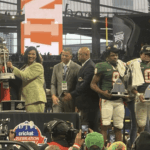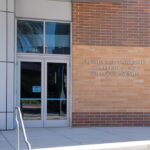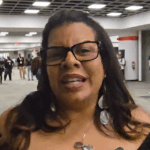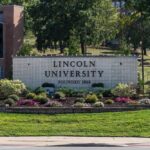
Small colleges, massive tech impact
Historically Black colleges represent just 3 percent of American higher education institutions, yet they produce 20 percent of Black graduates and 25 percent of African American STEM degree holders. Now these academic powerhouses are transforming themselves into entrepreneurial ecosystems that mint the next generation of Black tech founders and business leaders.
The revolution accelerated dramatically in 2024 when federal agencies poured $504 million into Regional Technology and Innovation Hubs, with several programs specifically targeting HBCU innovation centers. Combined with major corporate partnerships from Apple, Microsoft and other tech giants, these investments are reshaping how historically underfunded institutions compete in the innovation economy.
Three flagship programs demonstrate how HBCU innovation centers are turning academic talent into startup success, creating pathways to wealth generation that bypass traditional barriers facing minority entrepreneurs.
Microsoft partnership creates startup pipeline
The HBCU Founders Initiative has emerged as the most successful program converting student ideas into funded companies. Supporting more than 1,200 students and alumni from more than 80 institutions, HBCUFI announced a strategic partnership with Microsoft and the Walton Family Foundation in August 2024 that expanded its pre-accelerator program to 15 campuses.
The eight-week intensive program delivers hybrid workshops, design thinking training and pitch competitions that have helped founders secure more than $2 million for their startups. Program leaders emphasize that HBCUFI provides access to resources typically available only at Ivy League institutions, including venture capital programming and professional mentorship networks.
Real money flows to student founders. HBCUFI-supported entrepreneurs have raised millions in funding, creating jobs and generating wealth in historically underserved communities. Industry observers note that these HBCU innovation centers make visible the entrepreneurial potential of Black students, challenging conventional assumptions about who leads in technology sectors.
The program’s success reflects a broader recognition among tech companies that diversity drives innovation. As one Microsoft executive observed, universities function as learning laboratories where ideas transform into innovations that address community challenges — a principle that HBCU innovation centers are implementing through strategic industry partnerships.
Apple powers virtual innovation ecosystem
The Propel Center launched in 2021 with substantial backing from Apple and the Southern Company, creating a virtual and physical hub that connects students and faculty from over 100 HBCUs to cutting-edge training opportunities. Based in Atlanta, the center offers instruction in artificial intelligence, app development, cybersecurity and entrepreneurship.
In 2024, the Propel Center introduced its “Future Proof Entrepreneurship” micro-credential course, equipping students with practical skills to launch ventures immediately upon graduation. The center also established an Arts & Entertainment Industry Accelerator, backed by Apple’s Racial Equity and Justice Initiative, providing mentorship to prepare students for creative industry leadership.
Digital platform ensures broad access. The Propel Center’s online infrastructure allows students to engage from any campus or remote location, removing geographical barriers that traditionally limited HBCU students’ access to innovation resources. This scalable model enables the center to serve students across dozens of institutions simultaneously.
The Apple partnership provides curriculum development, mentorship opportunities and internship placements, creating direct pathways to industry careers that historically remained closed to HBCU graduates. These corporate connections transform academic training into immediate employment opportunities at major technology companies.
State-level collaboration amplifies impact
Alabama’s comprehensive approach to HBCU innovation demonstrates how state-level coordination can amplify individual institutional efforts. The HBCU Innovation Experience represents a collaboration between The Alabama Collective and Innovate Alabama supporting all 14 of the state’s historically Black institutions.
Since inception, the program has introduced over 1,000 students and faculty to technology and entrepreneurship through coding workshops, app design competitions and strategic internships. In March 2025, the initiative’s Innovation Power Hours tour visited Drake State Community and Technical College, offering hands-on app development training and AI workshops.
Competition drives student engagement. The top 10 app submissions from Alabama’s HBCUs will compete in a $17,000 pitch competition in Montgomery, fostering a pipeline of Black innovators across the state. This competitive structure motivates student participation while providing tangible rewards for entrepreneurial achievement.
Alabama Collective’s internship programs have increased HBCU student participation in tech fields by 125 percent since 2024, demonstrating measurable impact on career placement and industry engagement. The state-level approach enables resource sharing and coordinated programming that individual institutions couldn’t achieve independently.
Federal funding accelerates transformation
The CHIPS and Science Act of 2022 created unprecedented opportunities for HBCU innovation centers through the U.S. Economic Development Administration’s Regional Technology and Innovation Hubs initiative. The July 2024 announcement of $504 million for 12 Tech Hubs included several programs specifically involving historically Black institutions.
The Birmingham Biotechnology Hub exemplifies this federal support, featuring a multi-HBCU workforce training collaboration focused on developing micro-credentials and experiential learning opportunities in biotechnology. The program aims to place graduates directly into high-quality jobs within the expanding biotech industry.
National Science Foundation expands research capacity. The NSF’s Historically Black Colleges and Universities Undergraduate Program supports STEM education and research nationwide. Central State University used HBCU-UP funding to develop an interdisciplinary forensic studies minor, integrating chemistry and social sciences to enhance diversity in criminal justice workforce development.
The NSF’s Technology, Innovation, and Partnerships Directorate, created under the CHIPS Act, further expands funding opportunities for HBCU innovation centers, supporting technology development and workforce training in critical areas including artificial intelligence and biotechnology.
Economic transformation extends beyond campus
HBCU innovation centers generate transformative outcomes that extend far beyond individual student success stories. By offering culturally relevant environments, these programs empower students to explore entrepreneurship without barriers often encountered in predominantly white startup ecosystems.
HBCUFI’s focus on tech-enabled solutions specifically addresses wealth gap issues, including access to healthcare and financial services in underserved communities. The Propel Center’s emphasis on career readiness ensures graduates enter high-demand industries with competitive skills and industry connections.
Systemic change through inclusive innovation. These HBCU innovation centers are reshaping the broader innovation economy toward more equitable participation where diverse perspectives drive technological advancement and economic growth. The White House’s 2025 initiative to promote HBCU excellence emphasizes public-private collaborations that foster innovation in historically underserved academic communities.
Looking ahead, programs like the United Negro College Fund’s HBCU Innovation Summit continue building pipelines connecting Black talent to technology giants. Since 2013, the summit has introduced more than 300 computer science and engineering students to Silicon Valley opportunities, demonstrating sustained commitment to long-term ecosystem development.
Sort By
 Register for exclusive access to VIP events and more
Register for exclusive access to VIP events and more
Sign up for periodic updates, special discounts, and more!





















